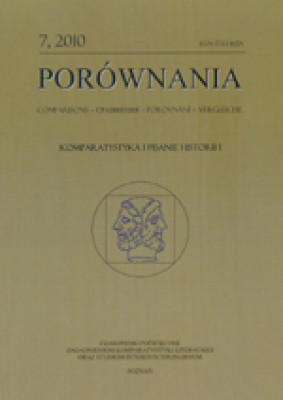The Politics of Historical Interpretation. Discipline and De-Sublimation
The aim of the article is to trace the relation between history, politics and interpretation bearing in mind the development of historiography and its theory. By repeating his well-known thesis that narrativity is an interpretative tool, the author proves that the type of discourse produced by historians measures its own relevance by being a tool of the political programme or ideology. The context for these considerations are the contemporary scientific branches, with particular emphasis on the humanities and social sciences. Although with apolitical declarations political thinking is incorporated in the transformation of historical research into a science. The model of natural sciences, which serves as a pattern for all branches of science does not fit to a science which inherently needs interpretation. The postulated objectivism of the historian is, after all, constituted by a projection of his or her own view on history. The following stages of the “disciplinisation” of knowledge on history were the deretorisation of historical thought and the 18th century aesthetical debate on sublimity. The leitmotif of contemporary historical research is aesthetism which saves the historical process from viewing it in the categories of chaos and sublimity, which were ascribed to it by Schiller. The romantic vision of history became a negative point of reference to 19th century antiutopianism – both marxists as well as conservatists – which was connected to viewing history in categories of logically combined events. The 20th century finally buried the vision of history as a show of unrestrained elements associated since then with totalitarian regimes. According to White, fascism as a historical event is for every humanities’ science, which claims to be a discipline, the toughest test of social responsibility. He describes the research of Pierre Vidal-Naquet, which in this context also gives a Zionist interpretation of the history of Extermination, and comments on the type of discoursive revisionist practices of the holocaust. The moment when an event is transferred from the category of memory (emotional) to the category of history discourse (unemotional) is a key element of politics used for interpretation. White warns against calling any historical interpretation “untruthful” prematurely because, according to him, they still have influence on current political strategies. By interpreting the Zionist reactions by categories of Schiller’s answer to “history’s show”, he sees it as a natural need for reinstating the right to dignity and freedom of the Jewish nation.
ISSN: 1733-165X
| Article Title | Type | Size |
|---|---|---|
| White | [pdf] | [626 KB] |
